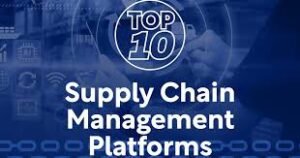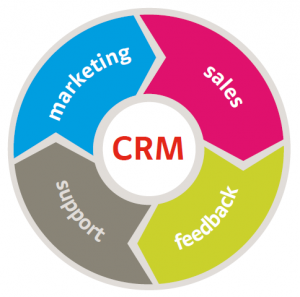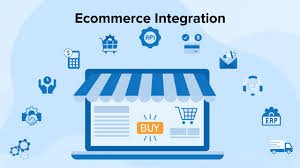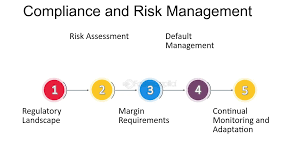New erp software modules is required as businesses grow and evolve, the need for an adaptable and efficient management system becomes more pressing. Enterprise Resource Planning (ERP) software has long been the backbone of such systems, integrating different business functions into one streamlined solution. Modern ERP platforms now come with new modules that enhance operational efficiency, provide better insights, and ultimately drive growth. Let’s explore some of the latest ERP modules and the benefits they bring to organizations.
1. Advanced Human Resource Management (HRM) Module

The HRM module in ERP systems has evolved beyond basic payroll and attendance tracking. The latest versions integrate more robust tools for talent management, performance tracking, and employee engagement.
Scope of Erp solutions
Key Benefits
new erp software modules:
- Streamlined Recruitment: Automation of job postings, candidate shortlisting, and interview scheduling.
- Enhanced Employee Management: Comprehensive employee performance tracking, training management, and career pathing.
- Workforce Analytics: Real-time data insights into employee productivity, attendance trends, and workforce needs, aiding better decision-making.
2. AI-Driven Supply Chain Management (SCM) Module

With increasing demand for agility in supply chains, ERP systems are introducing AI-powered SCM modules that improve forecasting, demand planning, and supply chain visibility.
Key Benefits
new erp software modules:
- Improved Demand Forecasting: AI algorithms predict market demands, reducing the risk of overstocking or understocking.
- Real-Time Monitoring: Track shipments, inventory levels, and supplier performance in real time, allowing for quicker adjustments.
- Cost Savings: Optimized inventory management reduces warehousing costs and minimizes product obsolescence.
3. Customer Relationship Management (CRM) Integration Module

The latest CRM modules in ERP software offer deeper integration with sales, marketing, and service teams, ensuring a seamless customer experience.
Key Benefits
new erp software modules :
- Unified Customer Data: Centralized customer information, offering a 360-degree view of interactions, history, and preferences.
- Automated Marketing: Personalize customer outreach with automated campaigns based on customer behavior and interaction data.
- Sales Optimization: Sales teams can access real-time data on customer needs, past purchases, and potential upsell opportunities.
4. Business Intelligence (BI) and Analytics Module
ERP systems are now integrating powerful BI tools that can analyze large volumes of data and present actionable insights.
Key Benefits
new erp software modules:
- Enhanced Decision-Making: With real-time dashboards, businesses can monitor KPIs, financial data, and operational performance.
- Predictive Analytics: Identify future trends and make proactive decisions through predictive models.
- Tailored Reporting: Customizable reports can be generated for different departments, ensuring all teams have the insights they need.
5. Project Management Module

For organizations managing complex projects, modern ERP systems now come with integrated project management tools. These tools allow for better collaboration, task tracking, and resource allocation.
Key Benefits
new erp software modules:
- Resource Optimization: Efficient allocation and tracking of resources across multiple projects.
- Centralized Project Data: A single platform for all project-related information, from budgets to timelines and deliverables.
- Improved Collaboration: Cross-functional teams can easily collaborate, track progress, and adjust strategies as needed.
6. E-commerce Integration Module

With the growth of online shopping, ERP systems are now including e-commerce integration modules. This allows businesses to manage their online and offline operations from a single platform.
Key Benefits of new erp software modules :
- Seamless Order Management: Automate order processing, inventory management, and shipping from your e-commerce platform.
- Real-Time Sync: Data from online sales channels is instantly reflected in your ERP system, ensuring accurate inventory and sales records.
- Enhanced Customer Experience: Manage product listings, prices, and promotions efficiently across multiple sales channels.
7. Compliance and Risk Management Module

Compliance requirements and risks are ever-evolving. New ERP modules focus on keeping companies compliant with local and international regulations while helping to mitigate risks.
Key Benefits:
- Regulatory Compliance: Automatically update and align business operations with changing regulatory requirements.
- Risk Mitigation: Identify and respond to potential operational, financial, or reputational risks before they escalate.
- Audit Trails: Maintain detailed records of transactions and changes, making audits more efficient and less error-prone.
Conclusion
Modern ERP software is transforming the way businesses operate, thanks to the addition of these new modules. Whether it’s improving human resources, streamlining supply chains, or offering advanced analytics, these enhancements offer businesses the tools to stay competitive in a rapidly changing world. By adopting the latest ERP modules, organizations can benefit from increased efficiency, better decision-making, and a more agile, responsive approach to business management.

